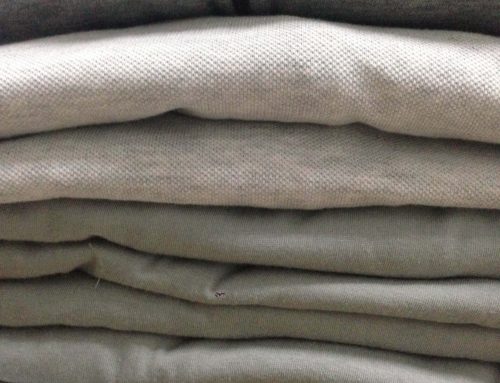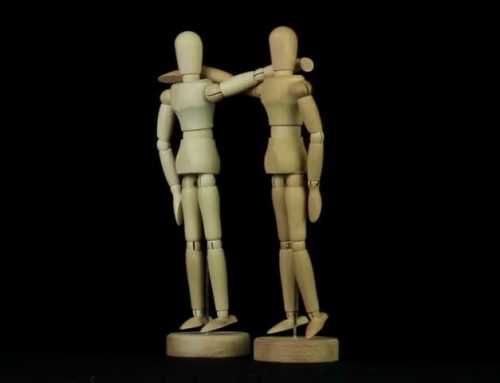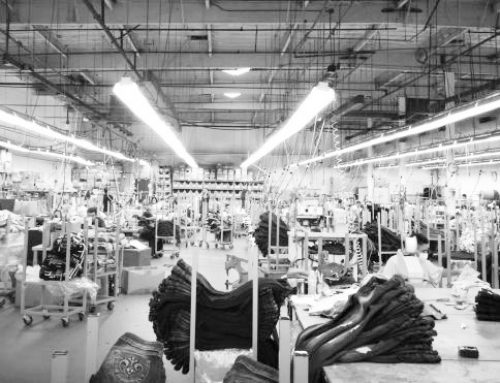How to select a clothing manufacturer can be a very difficult decisions in the creation of your apparel lines. Due diligence is needed at every step of the way to make the right choice. You need to ensure that careful thought is put into this decision as your company and brand reputation are on the line; if your product does not prove to be of high standards, neither will you!
How to Select a Clothing Manufacturer
Selecting a clothing manufacturer that is right for your company is one of the most important aspects of starting a clothing line. There are many different ways to find one; searching the internet will most likely be your first. However you may find this to prove difficult as few clothing manufacturers have proper websites. Use the resources you have around you in the form of industry contacts or suppliers of fabric and materials you have already sourced. Another option would be to try tradeshows and trade magazines if all else fails.
Locally vs. Overseas Clothing Manufacturer
If you are planning on only selling your lines in boutique setting and on a smaller scale, you will be able to source a clothing manufacturer locally. This will allow you to be more flexible in lead times as well as allow you to manufacture smaller batches. In addition, you will be able to keep inventory on hand at a lower amount to help reduce costs.
On the other hand, if you are selling high volumes to big retailers you will most likely be looking to get a clothing manufacturer overseas; most likely in Asia. Some good places to start searching could include sites such as Alibaba.com, Made-in-China.com, and GlobalSources.com. Keep in mind that the production lead time required from the beginning samples to the final end product mass produced is at least 6-8 weeks. If the clothing line is only a few different pieces, you may be able to reduce this lead time.
Almost all manufacturers, whether it be local or overseas, will have a MOQ (minimum order quantity). This will vary on the clothing manufacturer themselves as well as the number of pieces you have in your line, sizes and colour variations. But no matter where you find them, you must physically go to these manufacturing warehouse to see the operation to ensure you are getting what you are told you will be. Be extra cautious, if it seems to good to be true it probably is.
Some basic questions you will want to ask the clothing manufacturer in the “interview” process could include but not limited to:
- Are you open to working with new customers? Some manufacturers may be so busy that they in fact can not handle taking on more customers at this time.
- What are the types of clothing, products and materials you use? They may only specialize in making a certain type of clothing or possibly do not work with your material. Some manufacturers are not able to produce jeans for example as they require special machinery; leather requires special machinery as well.
- What are the average prices? They should be able to give you an approximate price range of similar products they have produced so you have some idea of your overall cost.
- What other brands have they produced for? Checking out the work that they have already completed will help you determine if they will meet your needs and complexity of your designs.
- What is there MOQ? Is it per item or per size or per colour? Make sure you know how many total finished pieces you are committing to having produced.
- What services do they provide? Patterns, material sourcing, label production, packaging, shipping, etc. If they do not provide you all the services you need they may be able connect you to others in the industry that can. Your manufacturer should be a good source of information.
- Are they able to scale to the growth of your business? If you initially start off having 1,000 pieces produced and your requirements increase over time to 5,000 or 10,000, are they able to meet these new higher production needs.
Once you chosen a company that best suits your needs, your visit to the location will allow you to see first hand that the company does support and encourage ethical working standards. You do not want your brand and company associated with “sweat shops” or unethical working conditions.
If you are not able to visit the locations yourself, your other option to make sure your clothing is produced to meet your needs and pass your quality control is to hire an agent.
Barriers to Overcome
Not only will you face physical barriers with the possibility of travel (if your clothing manufacturer is overseas) but you are sure to encounter communication barriers as well. You must take into account the local language and culture. Many Asian countries may work at a slower pace and do not respond well to pressure or being hurried. You will learn patience in the process. Some “hand holding” and regular weekly follow up calls will be necessary to keep things on track. In a post by a fellow Canadian Alexandra Suhner Isenberg she says:
you should not approach them with the frame of mind ‘I am a customer’ because manufacturers are difficult to work with and good ones are precious. Approach them with the tone of ‘I am a great company and I would be thrilled if you’d be willing to work with me’.
Next Steps
Once you have done all your research and are ready to move forward, your next steps would include:
- Sending them drawings (or samples if you have) – From your drawing they will be able to determine if they can manufacture your pieces or not. If they are, the drawings will allow them to start making the patterns and producing your sample if you do not already have one.
- Production of a sample collection – The production of samples will allow you to make your necessary adjustments and ensure everything is meeting your standards before you go into full production.
- Confirming dates and booking time – Make sure they have time to produce your products and that you book time and give specific deadline of when things need to be completed by. There is nothing worse then getting to this stage to find out they will not be able to start your production for 3-4 months.
- Terms of the contract – You want to ensure that cost and fees are clearly set out. You also want to make sure that as you scale your production, they cost per piece price goes down. Economies to scale.
- Begin production – Making all of your dreams come true!
Clothing Manufacturing Agent Bali can help you select the manufacturer who will work the best for all of your garment needs.



